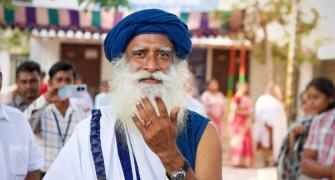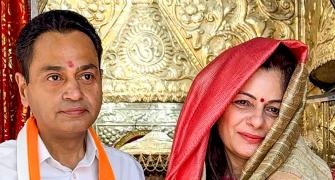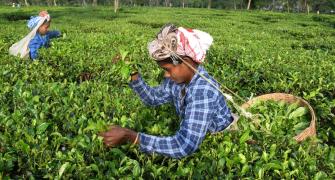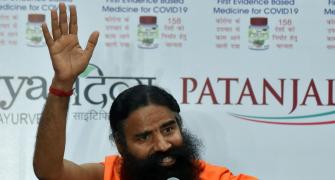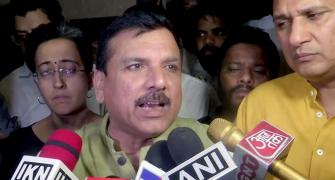Sharad Pawar may have declared that he and his party, the Nationalist Congress Party stood by Manmohan Singh as candidate of the United Progressive Alliance for the prime minister's job. His presumed or perceived interest in the office for himself before and during the discussion on seat-sharing between the NCP and the Congress was looked upon as his lack of loyalty to the cause to get Manmohan Singh back into the office.
Now, thanks to the other allies of the Congress which were part of the UPA which remained in office for the full term, have pushed the possibility of Pawar staking his claim for that post should the need or scope arise after the post-poll headcount in the various alliances and alliances-within-alliances. That is so because the UPA itself is not united as per two yardsticks that would be significant in the final analysis.
One, the UPA is not the re-incarnation of the outfit that ran the government at the Centre. It is not even an alliance at the national level but a kind of loose arrangement at the level of various states. So there is nothing common across the board about it. Two, the UPA and the Congress are much diminished because the allies have parted company -- the Pattali Makkal Katchi has plighted its troth suddenly with J Jayalalithaa as if it suddenly woke up to the dangers of being associated with an uncaring Dravida Munnetra Kazhagam.
To add to the Congress misery, invited upon itself by its own unremitting arrogance, is the decision of Lalu Prasad Yadav, Ram Vilas Paswan and Mulayam Singh Yadav to form an anti-Congress axis. They seem to want to enlarge their space within the UPA by securing more seats and what better than to belittle the big-brother ally by winning seats by defeating it in constituencies?
The Congress swagger -- wouldn't much of the country want that? -- would be on a smaller scale than hitherto seen and when chips are down, a la the Left Front, hold the major ally to ransom. The likelihood that it would indeed be a major ally now seems a little unrealistic. At that point in time, any regional satrap with an ability to keep parties together would stand a distinct chance of getting the top post. After all, the formation of the Third Front has made that a distinct possibility.
The Left naturally does not want the BJP to be ruling the country. Nor does it want the Congress to be similarly posited once the votes are counted. Given its economic policies doctrinaire approach, the Left itself would find little favour of leading the pack in the government and ambitions of Mayawati, who is seeking a pan-Indian acknowledgement that hers is a pan-Indian party, is planning to field 500 candidates in as many seats. In this potential free-for-all others wanting to throw their hats in the ring is a given.
It is in this context that one has to read Sharad Pawar's calculations right, when he said that the UPA would not be able to form a government without the support of the Left. And if the two parties are so disinclined even to hold hands, then to get to the magic figure of 271, shrewd politicians, not rambunctious leaders like Mayawati would find opportunities emerging. Such parties lead by the two Yadavs and Paswan are less likely to be captains because they have the ability to create intra-alliance friction, not to smoothen the team mechanics.
Therefore, it is a tantalising possibility that the emerging political line-ups, the desire to enlarge their respective bases as a proxy proclamation that they want to diminish the Congress et al imply that government formation would be an excruciatingly painful, more opportunistic and less ideological driven exercise. Everything would be up for grabs and Indian politicians being what they are, none would like to miss the cake. That means, among others, Sharad Pawar is also the potential candidate, present protestations notwithstanding, for the top job. The situation would lend itself to that end.
Mahesh Vijapurkar is a former deputy editor, The Hindu.

